 Like many of his books, Carl Schmitt’s The Crisis of Parliamentary Democracy (1923) is a slender volume packed with explosive ideas.[1] [2] The title of the English translation is somewhat misleading. The German title, Die geistesgeschichtliche Lage des heutigen Parlamentarismus, is more literally rendered The Intellectual-Historical Position of Contemporary Parliamentarism. But the word “crisis” is still appropriate, because parliamentary democracy in Weimar Germany really was in crisis. Moreover, Schmitt’s diagnosis of the cause is of permanent value, because all parliamentary democracies have the same basic weakness.
Like many of his books, Carl Schmitt’s The Crisis of Parliamentary Democracy (1923) is a slender volume packed with explosive ideas.[1] [2] The title of the English translation is somewhat misleading. The German title, Die geistesgeschichtliche Lage des heutigen Parlamentarismus, is more literally rendered The Intellectual-Historical Position of Contemporary Parliamentarism. But the word “crisis” is still appropriate, because parliamentary democracy in Weimar Germany really was in crisis. Moreover, Schmitt’s diagnosis of the cause is of permanent value, because all parliamentary democracies have the same basic weakness.
By “contemporary” parliamentarism, Schmitt specifically means “liberal-democratic parliamentarism.” Let’s define these terms.
Schmitt does not think that voting is essential to democracy. Democracy is simply the idea that a government is legitimate if it expresses the will of the people, the demos. But Schmitt recognizes that a dictator can sometimes express the will of the people better than the people can at the ballot box or their representatives can in parliament (p. 28).
This is because the will of the people is not necessarily what the people happen to want at the moment they cast their votes. Instead, it is what people really want, which basically means what they ought to want, on the Socratic assumption that what we really want is the good. If we all want the good, but some of us are mistaken about what the good is, then it is possible that someone else—say, a dictator—might know what the people want better than they do.
For convenience, I am going to call what the people really want—and ought to want—“the common good,” although Schmitt does not use this language.
Schmitt is not really clear about what is essential to liberalism. He claims that the separation of powers, open parliamentary debate, and a free press are essential to liberalism (p. 3). But these are just manifestations of the underlying liberal motive, which is the protection of individuals from state power. Liberals believe that all individuals have rights that exist prior to society and argue that individual rights should trump appeals to the common good.
Liberals have many opinions about the common good. Some deny that it exists. Others think it exists but is unknowable. Others claim that it exists and can be known, but it cannot be secured by state action. Therefore, the best we can hope is that the common good somehow emerges as the unintended consequence of individuals and groups selfishly pursuing their private interests. Still other liberals might think that the common good is real, knowable, and securable by the state, but that individual rights always have a superior claim.
Democracy is not necessarily liberal. Democracy can justify virtually any state action by appeals to the common good, especially in emergencies. Liberalism is not necessarily democratic, because monarchical regimes can also secure individual rights. For instance, Thomas Mann rejected the Weimar Republic for monarchy on essentially liberal grounds: “I want the monarchy. I want a passionately independent government, because only it offers protection for freedom in the intellectual as well as the economic sphere. . . . I don’t what this parliament and party business that will sour the whole life of the nation. . . . I don’t want politics. I want competence, order, and decency.”[2] [3]
Schmitt does zero in on the essence of parliamentarism, which is talk. The very word parliament comes from the French parler, to speak, and refers to arriving at government decisions—executive, judicial, and above all, legislative—by means of discussion (p. 5). Parliament is, therefore, essentially pluralistic, whereas a monarchical regime or a democratic dictatorship has a unitary decision-maker.
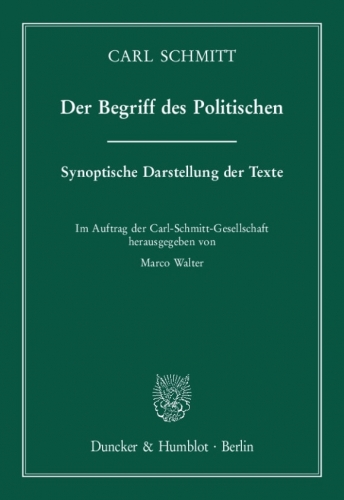 The rationale for making decisions in parliament, as opposed to reposing them in the hands of a single man, is that even the wisest man may benefit from hearing other points of view. We are more likely to arrive at the best possible decision if a number of people bring different perspectives and bodies of knowledge to the table. But the process only works if all parties are open to being persuaded by one another, i.e., they are willing to change their minds if they hear a better argument. This is what argument in “good faith” means, as opposed to merely shilling for a fixed idea.
The rationale for making decisions in parliament, as opposed to reposing them in the hands of a single man, is that even the wisest man may benefit from hearing other points of view. We are more likely to arrive at the best possible decision if a number of people bring different perspectives and bodies of knowledge to the table. But the process only works if all parties are open to being persuaded by one another, i.e., they are willing to change their minds if they hear a better argument. This is what argument in “good faith” means, as opposed to merely shilling for a fixed idea.
Although Schmitt does not use this language, we can speak of parliament as an edifying institution, meaning that participation in parliamentary debate helps us improve ourselves by replacing personal opinions with common truths. But good-faith participation in parliamentary dialogue requires a constant effort to transcend selfish attachments to one’s own ego, opinions, and interests in order to serve the common good. Such public-spiritedness and objectivity are rare and precious virtues, the products of a rigorous form of education. We’re not all born that way.
Parliamentarism is not necessarily democratic, because even monarchical regimes can have parliaments. Democracies are not necessarily parliamentary, because the will of the people can be carried out by a dictator (pp. 16, 32). Parliamentarism is not necessarily liberal, because monarchies and democracies can be parliamentary without granting individual rights against the state. And liberalism need not be parliamentary, since monarchical and dictatorial regimes can protect individual rights.
Because liberalism, democracy, and parliamentarism don’t necessarily entail one another, liberal-democratic parliamentarism is a synthesis that is prone to instability and crisis. Specifically, Schmitt argues that parliamentary democracy is undermined by liberalism.
Schmitt does not openly state his own preferences, but he seems to favor the democratic idea of legitimacy. He also argues that parliamentary democracy can work, but only under certain conditions. One of the central problems of politics is maintaining the unity of society. When unity fails, we face one of the greatest political evils: civil war. Given the importance of unity, it seems risky, even reckless, to bring a plurality of voices and interests into the very heart of the state and encourage them to debate about the common good. But that is the essence of parliamentarism.
According to Schmitt, a society can risk parliamentary debate only if two important conditions are met.
First, the differences between the various parties need to exist against a backdrop of relative homogeneity, the more homogeneity the better: of race, culture, language, religion, manners, and morals (p. 9). Thus the people and their government will remain one, even if parliament is deeply polarized over a particularly thorny issue like slavery or abortion.
Second, even within largely homogeneous societies, the franchise is generally limited to a particular subgroup—such as male property owners—to increase the quality of electoral decision-making. This increases the homogeneity of decision-makers even further. In short, a society can afford to enshrine disagreement in the heart of its government only when everyone is pretty much the same, thus the unity of society is not at risk.
Schmitt argues that liberalism undermines parliamentary democracy because of “the contradiction between liberal notions of human equality and democratic homogeneity” (p. 15). Parliamentary democracy presupposes a certain kind of equality that Schmitt characterizes as “substantial,” meaning simply the homogeneity of the society at large and of the electorate in particular (pp. 9, 10, 15). Liberalism undermines substantive equality with its abstract and universal equality. Liberalism sees no reason to confine democracy to a single society or to a single stratum within a society. Thus it lobbies to abolish the distinction between citizen and foreigner and to broaden the franchise as much as possible, regardless of sex, education, age, or intelligence.
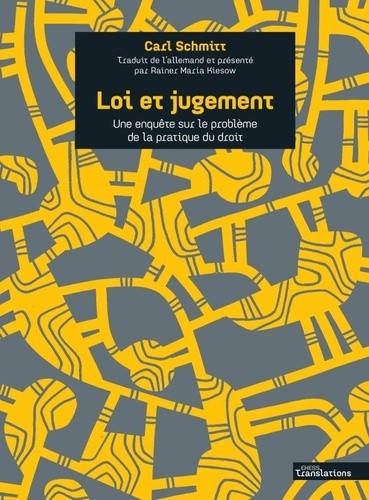 Liberalism’s abstract egalitarian zeal has never resulted in a global liberal democracy or the enfranchisement of every infant or imbecile (p. 16). Indeed, such goals are impossible. But it has undermined the conditions that make good-faith parliamentary discussions possible.
Liberalism’s abstract egalitarian zeal has never resulted in a global liberal democracy or the enfranchisement of every infant or imbecile (p. 16). Indeed, such goals are impossible. But it has undermined the conditions that make good-faith parliamentary discussions possible.
As the diversity and inclusiveness of a society increase, the voices and interests represented in parliament become increasingly diverse as well. Too much diversity, however, makes it difficult to arrive at any sort of consensus. There are too many shades of opinion to reconcile, too many interests to accommodate.
To reach any agreement at all, parliament can no longer be an edifying institution, in which people grow by exchanging opinions for truth. Instead, it must become a very different kind of institution, in which people no longer seek to transcend what economists call “given preferences.” Instead, they seek simply to satisfy their given preferences through trade (p. 6). Parliament, in effect, becomes a marketplace where agreement is based not on arriving at a common truth about the common good, but simply arriving at an exchange that satisfies the private interests of all parties. And, since in trade, the highest bidder takes the prize, the more liberal a parliamentary democracy is, the more oligarchical it becomes.
Of course, liberal democracies don’t dispense entirely with parliamentary debate. Instead, they turn it into a farce. The sordid little deals that allow liberal democracy to “work” are still, technically, “corruption” and “bad faith.” Thus they cannot be struck in public debate in the parliamentary chamber. Instead, they are made in the antechamber, the proverbial “lobby” (p. 7). Lobbying takes place behind closed doors: in secret committees, private clubs, discreet dinners, and other smoke-filled rooms. What’s more, everybody knows it, and as this cynicism spreads, the legitimacy of liberal democracy collapses, people start looking for alternatives, and a crisis is at hand.
It is important to note that the essential weakness of liberalism is not just its abstract and universalistic notion of equality. Another factor is its conception of rights and interests as essentially private and material, as opposed to the idea of the common good.
One can imagine a liberal parliamentary democracy without the reckless abstract and universalist egalitarianism that abolishes borders and standards for the franchise. But absent a robust conception of the common good, liberalism’s essentially private and material concept of political rights and interests will inevitably lead to political corruption, cynicism, and collapse, as the nation’s material patrimony is privatized and its spiritual patrimony is allowed to simply rust away and be replaced with global consumer crap culture.
Liberal democratic politicians have long been infamous for their anti-intellectualism, casual corruption, and cowardice. This follows directly from bourgeois liberalism, which conceives of all interests as essentially private and material, differing only in degree, and thus accommodatable through exchange. The idea of absolute differences of principle seems to them like a dangerous form of fanaticism, but bourgeois politicians are eager to appease such fanatics, most of whom are found on the Left. This is why bourgeois societies continually drift to the Left.
Schmitt argues that the crisis of liberal democracy opens the door to a takeover by the Left. Hence chapter 3 of his book treats “Dictatorship in Marxist Thought” and chapter 4 discusses “Irrationalist Theories of the Direct Use of Force,” focusing mainly on French syndicalist Georges Sorel. But in chapter 4, Schmitt also holds out the possibility of an equally vital Right-wing alternative to liberal democracy.
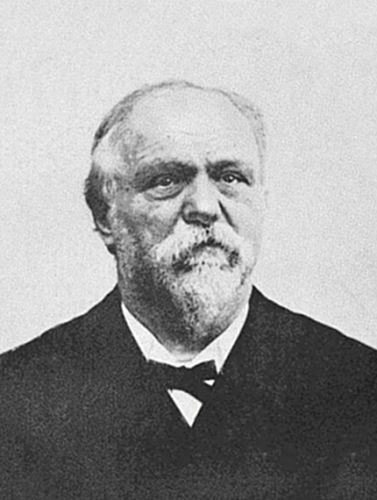 Schmitt isn’t always forthcoming about his own political preferences, but sometimes his rhetoric tips his hand. The first three chapters of Crisis are quite dry, and Schmitt’s arguments only really come into focus in the 1926 Preface to the Second Edition. But chapter 4 crackles with enthusiasm as Schmitt discusses Sorel’s Reflections on Violence, as well as Russian anarchist Mikhail Bakunin, French anarchist Pierre-Joseph Proudhon, and Spanish Catholic reactionary Juan Donoso Cortés. Then Schmitt ends by arguing that nationalism and fascism are more consistent with Sorel’s ultimate premises than are Communism, socialism, or anarcho-syndicalism.
Schmitt isn’t always forthcoming about his own political preferences, but sometimes his rhetoric tips his hand. The first three chapters of Crisis are quite dry, and Schmitt’s arguments only really come into focus in the 1926 Preface to the Second Edition. But chapter 4 crackles with enthusiasm as Schmitt discusses Sorel’s Reflections on Violence, as well as Russian anarchist Mikhail Bakunin, French anarchist Pierre-Joseph Proudhon, and Spanish Catholic reactionary Juan Donoso Cortés. Then Schmitt ends by arguing that nationalism and fascism are more consistent with Sorel’s ultimate premises than are Communism, socialism, or anarcho-syndicalism.
Anarchism derives from the Greek anarchia (ἀναρχία), meaning the lack of an arche (ἀρχή ) or first principle. For Bakunin and Proudhon, anarchism is not simply a rejection of top-down political order, but a rejection of a metaphysical first principle (God) and an epistemological first principle (reason). Anarchism replaces top-down political order with spontaneous, bottom-up, social self-organization. God is replaced by the dynamism of nature. Reason and science are replaced with animal vitality, spontaneity, imagination, art, and action. For Sorel, the opposite of rational self-possession is the enthralling power of myth and the spontaneity of action, especially violence that both expresses and releases vital energies by smashing the political and economic machines of priests, kings, and capitalists. To give you a sense of his style, I am going to quote Schmitt’s summary of Sorel’s thinking at length:
. . . Its center [i.e., the center of Sorel’s theory] is a theory of myth that poses the starkest contradiction of absolute rationalism and its dictatorship, but at the same time, because it is a theory of direct, active decision, it is an even more powerful contradiction to the relative rationalism of the whole complex that is grouped around conceptions such as “balancing,” “public discussion,” and “parliamentarism.”
The ability to act and the capacity for heroism, all world-historical activities reside, according to Sorel, in the power of myth. . . . Out of the depths of a genuine life instinct, not out of reason or pragmatism, springs the great enthusiasm, the great moral decision, and the great myth. In direct intuition, the enthusiastic mass creates a mythical image that pushes its energy forward and gives it the strength for martyrdom as well as the courage to use force. Only in this way can a people or class become the engine of world history. Wherever this is lacking no social and political power can remain standing. And no mechanical apparatus can build a dam if a new storm of historical life has broken loose. Accordingly, it is all a matter of seeing where this capacity for myth and this vital strength are really alive today. In the modern bourgeoisie, which has collapsed into anxiety about money and property, in this social class morally ruined by skepticism, relativism, and parliamentarism, it is not to be found. The governmental form characteristic of this class, liberal democracy, is only a “demagogic plutocracy.” Who then, is the vehicle of great myth today? Sorel attempted to prove that only the socialist masses of the industrial proletariat had a myth in which they believe, and this was the general strike. . . . It has arisen out of the masses, out of the immediacy of the life of the industrial proletariat, not as a construction of intellectuals and literati, not as a utopia; for even utopia, according to Sorel, is the product of a rationalist intellect that attempts to conquer life from the outside with a mechanistic scheme.
From the perspective of this philosophy, the bourgeois ideal of peaceful agreement, an ongoing and prosperous business that has advantages for everyone, becomes the monstrosity of cowardly intellectualism. Discussing, bargaining, parliamentary proceedings appear a betrayal of myth and the enormous enthusiasm on which everything depends. Against the mercantilist image of balance, there appears another vision, the warlike image of a bloody, definitive, destructive, decisive battle (pp. 68–69)
Sorel claims that the myth that animates the proletariat is “the general strike” in which the entire proletariat brings the economy to a halt until its demands are met.
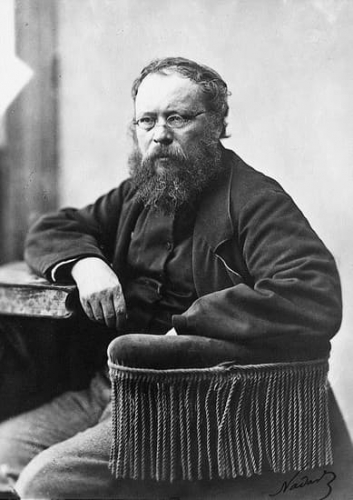 Schmitt then hastens to add that a similar vision of a bloody final reckoning was found on the Right: “In 1848 this image rose up on both sides in opposition to parliamentary constitutionalism: from the side of tradition in a conservative sense, represented by a Catholic Spaniard, Donoso Cortés, and in radical anarcho-syndicalism in Proudhon. Both demanded a decision. . . . Instead of relative oppositions accessible to parliamentary means, absolute antitheses now appear” (p. 69). But the tireless talk of bourgeois parliamentarians is all about evading the necessity of decision in the face of hard either/ors, about evading the existence of real enmity. “In the eyes of Donoso Cortés, this socialist anarchist [Proudhon] was an evil demon, a devil, and for Proudhon the Catholic was a fanatical Grand Inquisitor, whom he attempted to laugh off. Today it is easy to see that both were their own real opponent and that everything else was only a provisional half-measure” (p. 70). Schmitt clearly hungers for a similar clarity in Weimar and saw the rise of Fascism in Italy as the present-day nemesis of the Left.
Schmitt then hastens to add that a similar vision of a bloody final reckoning was found on the Right: “In 1848 this image rose up on both sides in opposition to parliamentary constitutionalism: from the side of tradition in a conservative sense, represented by a Catholic Spaniard, Donoso Cortés, and in radical anarcho-syndicalism in Proudhon. Both demanded a decision. . . . Instead of relative oppositions accessible to parliamentary means, absolute antitheses now appear” (p. 69). But the tireless talk of bourgeois parliamentarians is all about evading the necessity of decision in the face of hard either/ors, about evading the existence of real enmity. “In the eyes of Donoso Cortés, this socialist anarchist [Proudhon] was an evil demon, a devil, and for Proudhon the Catholic was a fanatical Grand Inquisitor, whom he attempted to laugh off. Today it is easy to see that both were their own real opponent and that everything else was only a provisional half-measure” (p. 70). Schmitt clearly hungers for a similar clarity in Weimar and saw the rise of Fascism in Italy as the present-day nemesis of the Left.
Donoso Cortés was at heart a backwards-looking, reactionary monarchist. But Schmitt does not mention here that Donoso Cortés believed that monarchy no longer really existed. There were still kings, but even they did not believe in the legitimacy of monarchy. Instead, the fount of political legitimacy had passed to the people. Thus Europe’s remaining monarchs simply followed liberal democrats, who in turn followed the far Left: “Only in socialism did he see what he call instinct (el instinto) and from which he concluded that in the long run all the parties were working for socialism” (p. 70). Unfortunately, the Left was leading the entire world to perdition.[3] [7] Thus, Donoso Cortés embraced the idea of a reactionary dictatorship not merely to protest or retard but to reverse the “progress” of the Left. He was, therefore, something of a forerunner of modern Fascism, which Schmitt discusses in the conclusion of his book.
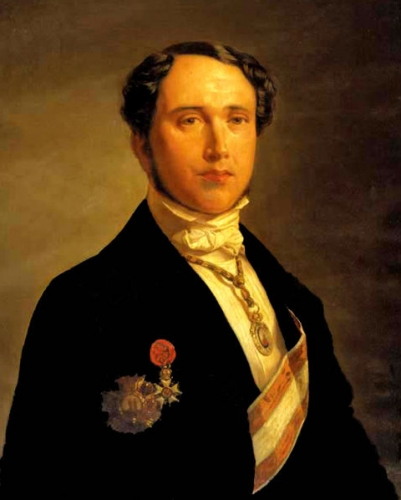 Schmitt closes with an immanent critique of Sorel. First, Schmitt argues that Sorel himself ultimately subordinates proletarian myth and violence to rationalism, because the goal of the revolution is to take control of the means of production. But the modern economic system is of a piece with bourgeois democracy, thus “If one followed the bourgeois into economic terrain, then one must also follow him into democracy and parliamentarism” (p. 73). This does not strike me as particularly persuasive. When Schmitt was writing, the example of Imperial Japan showed that one can have a modern industrial economy without liberal democracy.
Schmitt closes with an immanent critique of Sorel. First, Schmitt argues that Sorel himself ultimately subordinates proletarian myth and violence to rationalism, because the goal of the revolution is to take control of the means of production. But the modern economic system is of a piece with bourgeois democracy, thus “If one followed the bourgeois into economic terrain, then one must also follow him into democracy and parliamentarism” (p. 73). This does not strike me as particularly persuasive. When Schmitt was writing, the example of Imperial Japan showed that one can have a modern industrial economy without liberal democracy.
But one can’t have a modern industrial economy without rationalism, thus: “should this economic order develop even further, should production intensify even more, which Sorel obviously also wants, then the proletariat must renounce its myth. Just like the bourgeoise, it will be forced, through the superior power of the production mechanism, into a rationalism and mechanistic outlook that is empty of myth” (p. 73). This is a much more persuasive argument, for syndicalism becomes a farce if the proletariat overthrows gods, kings, and capitalists, only to refashion itself in their image.
But how can one consolidate the victory against rationalism and disenchantment into an entirely new form of society? Schmitt’s answer is that one needs a stronger myth than the general strike: namely nationalism.
Schmitt then discusses how Marxist and syndicalist ideas became fused with nationalism. The “bourgeoisie” as a figure of contempt was “first created by the aristocracy” then “propagated in the nineteenth century by romantic artists and poets” (p. 74). Marx and Engels then picked it up and, despite the pseudo-scientific sheen of Hegelian dialectics, transformed the bourgeoise into “an image of the enemy that was capable of intensifying all the emotions of hatred and contempt” (pp. 73–74).
When the Marxist myth of the bourgeoisie migrated to Russia, “it was able to give new life to the Russian hatred for the complication, artificiality, and intellectualism of Western European civilization . . .” (p. 74). At this point, Marxism “seized a myth for itself that no longer grew purely out of the instinct for class conflict, but contained strong nationalist elements” (p. 74). This fusion of Marxism and Russia’s anti-Western national identity probably helped Communism take root in Russia first: “Proletarian use of force had made Russia Muscovite again” (p. 75).
This, Schmitt argues, “shows that the energy of nationalism is greater than the myth of class conflict” (p. 75). Moreover, Sorel’s other examples of the power of political myth include the German and Spanish wars of liberation against Napoleon which again prove that “the stronger myth is national”; “. . . whenever it comes to an open confrontation of the two myths, such as in Italy, the national myth has, until today always been victorious” (p. 75).
Schmitt doesn’t say why the national myth is more powerful than the myth of the general strike, but surely one factor is that the national myth embraces the whole of a people, not just the workers, and draws its energy from more threads of identity than just economic deprivation. As Schmitt notes:
In national feeling, various elements are at work in the most diverse ways, in very different peoples. The more naturalistic conceptions of race and descent, the more typical terrisme of the Celtic and Romance peoples, the speech, traditions, and consciousness of a shared culture and education, the awareness of belonging to a community with a common fate or destiny, a sensibility of being different from other nations—all of that tends toward a national rather than a class consciousness today. (p. 75)
This passage also throws a good deal of light on Schmitt’s remarks on the homogeneity that makes democracy possible. Schmitt, however, emphasizes that democracy requires even more homogeneity among electors, hence the limitation of the franchise based on age, sex, social class, education, and other factors.
Schmitt’s contemporary example of the superiority of the myth of the nation to that of the proletariat is the rise of Fascism in Italy:
Until now the democracy of mankind has only once been contemptuously pushed aside through the conscious appeal to myth, and that was an example of the irrational power of the national myth. In his famous speech of October 1922 in Naples before the March on Rome, Mussolini said “We have created a myth. This myth is a belief, a noble enthusiasm: it does not need to be reality; it is a striving and a hope, belief and courage. Our myth is the nation, the great nation which we want to make into a concrete reality for ourselves.” In the same speech he called socialism an inferior mythology. (p. 76)
 The nineteenth century was the age of parliamentary liberal democracy. The twentieth century is the age of political myths. The rise of political myth is itself “the most powerful symptom of the decline of the relative rationalism of parliamentary thought” (p. 76). The Left may be the gravedigger of liberal democracy, but it offers no real alternative, simply modern materialism and rationalism stripped of the liberal charms of freedom and private life.
The nineteenth century was the age of parliamentary liberal democracy. The twentieth century is the age of political myths. The rise of political myth is itself “the most powerful symptom of the decline of the relative rationalism of parliamentary thought” (p. 76). The Left may be the gravedigger of liberal democracy, but it offers no real alternative, simply modern materialism and rationalism stripped of the liberal charms of freedom and private life.
But the Left, quite unwittingly, has laid “the foundation of another authority, . . . an authority based on the new feeling for order, discipline, and hierarchy” (p. 76). A decade later, Schmitt cast his lot with the German party of national rebirth. The age of discussion was over; the age of myth had begun.
Nearly a century later, what light does Schmitt’s Crisis throw on our own? Schmitt is absolutely correct that liberalism’s mania for opening borders and lowering standards has made modern democracies increasingly dysfunctional.
As for the alternatives to liberal democracy, Left and Right versions still exist. But the myth of the general strike is completely dead. The proletariat was successfully wooed by both fascism and liberal democracy, so the Left now disdains the white working class as reactionaries and instead seeks to mobilize non-whites and sexual outsiders against the white majority. The new Leftist myth is of white guilt and non-white aggrievement. It is now so dominant that the United States is tearing itself to pieces. The American center-Right has completely capitulated to the mob. Their strategy is to do nothing and hope that the mob gets tired, so Republicans will not have to exercise courage.
The myth of the nation, however, is still very much alive. Liberal democracy and communism defeated fascism in the Second World War, but they did not defeat nationalism. Indeed, the Allies defeated the Axis only by drawing upon their own national myths. Currently, the liberal-democratic establishment is coddling the Left that is actively working to destroy it. Thus, for the time being, the nationalist Right should do nothing. Never interrupt your enemies when they are destroying one another.
But the center cannot hold. Eventually, a space will be cleared for a new confrontation of myths: the myth of white guilt, degradation, and death vs. the myth of white pride and regeneration. We call it White Nationalism. Before that confrontation comes, though, we need to ensure that our myth is the stronger.
If you want to support our work, please send us a donation by going to our Entropy page [8] and selecting “send paid chat.” Entropy allows you to donate any amount from $3 and up. All comments will be read and discussed in the next episode of Counter-Currents Radio, which airs every Friday.
Don’t forget to sign up [9] for the twice-monthly email Counter-Currents Newsletter for exclusive content, offers, and news.
Notes
[1] [10] Carl Schmitt, The Crisis of Parliamentary Democracy, trans. Ellen Kennedy (Cambridge, Mass.: MIT Press, 1985).
[2] [11] Quoted in Ellen Kennedy’s Introduction, Crisis, p. xxiv
[3] [12] See Schmitt’s fuller discussion of Donoso Cortés in Political Theology: Four Chapters on the Concept of Sovereignty (1922), trans. George Schwabb (Cambridge, Mass.: MIT Press, 1988), chapter 4, “On the Counterrevolutionary Philosophy of the State.”



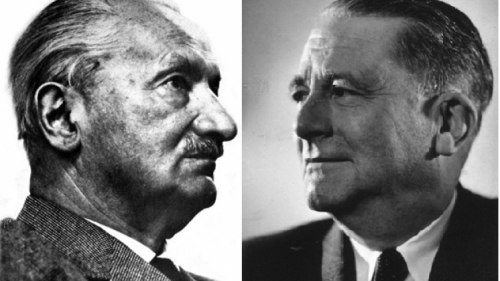
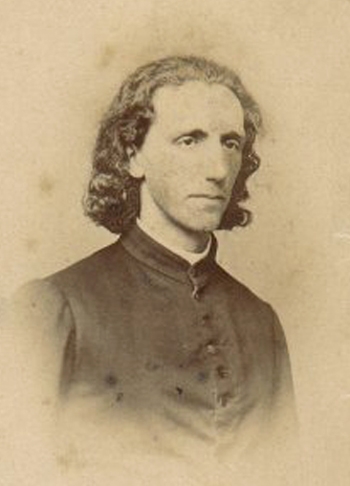 Selon lui, la philosophie, pendant plus de 2000 ans d'histoire, a prêté attention à tout ce qui a les caractéristiques de l'"être" dans ce monde, y compris le monde lui-même, mais a oublié ce que cela signifie. C'est la "question de vie" de Heidegger, qui traverse toutes ses œuvres comme un fil rouge. Une des sources qui a influencé son interprétation de ce thème a été les travaux de Franz Brentano (photo) sur l'utilisation des différents concepts de l'être dans Aristote. Heidegger commence son œuvre principale, L’Etre et le Temps, par un dialogue tiré du Sophiste de Platon, qui montre que la philosophie occidentale a ignoré le concept d'être parce qu'elle considérait que sa signification allait de soi. Heidegger, pour sa part, exige que toute la philosophie occidentale retrace dès le début toutes les étapes de la formation de ce concept, appelant à un processus de "destruction" de l'histoire de la philosophie. Heidegger définit la structure de l'existence humaine dans son ensemble comme "Sorge" (= le Souci), qui est l'unité de trois moments : "être dans le monde", "courir en avant" et "être avec le monde de l'être". La "Sorge" est la base de "l'analyse existentielle" de Heidegger, comme il l'a appelée dans L'être et le temps. Heidegger pense que pour décrire une expérience, il faut d'abord trouver quelque chose pour laquelle une telle description a un sens. Ainsi, Heidegger déduit sa description de l'expérience à travers le Dasein, pour lequel l'être devient une question. Dans L’Etre et le Temps, Heidegger a critiqué la nature métaphysique abstraite des façons traditionnelles de décrire l'existence humaine, comme l’"animal rationnel", la personnalité, l'être humain, l'âme, l'esprit ou le sujet. Le Dasein ne devient pas la base d'une nouvelle "anthropologie philosophique", mais Heidegger le comprend comme une condition pour la possibilité de quelque chose comme "anthropologie philosophique". Selon Heidegger, le Dasein est "Sorge". Dans la partie sur l'analyse existentielle, Heidegger écrit que le Dasein, qui se trouve jeté au monde entre les choses et les Autres, trouve en lui la possibilité et l'inévitabilité de sa propre mort.
Selon lui, la philosophie, pendant plus de 2000 ans d'histoire, a prêté attention à tout ce qui a les caractéristiques de l'"être" dans ce monde, y compris le monde lui-même, mais a oublié ce que cela signifie. C'est la "question de vie" de Heidegger, qui traverse toutes ses œuvres comme un fil rouge. Une des sources qui a influencé son interprétation de ce thème a été les travaux de Franz Brentano (photo) sur l'utilisation des différents concepts de l'être dans Aristote. Heidegger commence son œuvre principale, L’Etre et le Temps, par un dialogue tiré du Sophiste de Platon, qui montre que la philosophie occidentale a ignoré le concept d'être parce qu'elle considérait que sa signification allait de soi. Heidegger, pour sa part, exige que toute la philosophie occidentale retrace dès le début toutes les étapes de la formation de ce concept, appelant à un processus de "destruction" de l'histoire de la philosophie. Heidegger définit la structure de l'existence humaine dans son ensemble comme "Sorge" (= le Souci), qui est l'unité de trois moments : "être dans le monde", "courir en avant" et "être avec le monde de l'être". La "Sorge" est la base de "l'analyse existentielle" de Heidegger, comme il l'a appelée dans L'être et le temps. Heidegger pense que pour décrire une expérience, il faut d'abord trouver quelque chose pour laquelle une telle description a un sens. Ainsi, Heidegger déduit sa description de l'expérience à travers le Dasein, pour lequel l'être devient une question. Dans L’Etre et le Temps, Heidegger a critiqué la nature métaphysique abstraite des façons traditionnelles de décrire l'existence humaine, comme l’"animal rationnel", la personnalité, l'être humain, l'âme, l'esprit ou le sujet. Le Dasein ne devient pas la base d'une nouvelle "anthropologie philosophique", mais Heidegger le comprend comme une condition pour la possibilité de quelque chose comme "anthropologie philosophique". Selon Heidegger, le Dasein est "Sorge". Dans la partie sur l'analyse existentielle, Heidegger écrit que le Dasein, qui se trouve jeté au monde entre les choses et les Autres, trouve en lui la possibilité et l'inévitabilité de sa propre mort.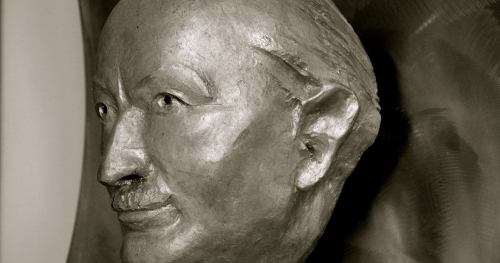
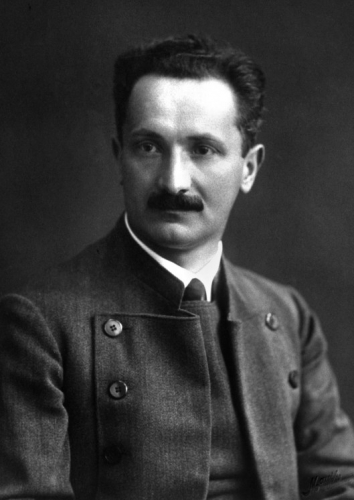
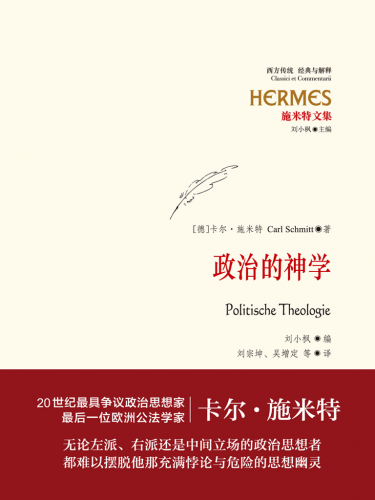
 Le professeur Xiao Bin a souligné dans son livre "De l'État, du monde et de la nature humaine à la politique : la construction du concept politique de Schmitt", que l'homme lui-même est un être dangereux. "Il prétend que la politique est un danger pour les gens." La question suivante qui se pose lorsque l'on participe à la politique est d'expliquer ce qu'est la politique, en particulier la nature de la politique. La survie de l'unité nationale exige comme condition préalable une distinction entre ennemis et amis. Une politique fondée sur la séparation des ennemis et des amis est non seulement le destin inévitable de l'unité de la nation et de l'État, mais aussi la base de son existence. Schmitt a une compréhension unique de la nature de la politique : la norme de la politique est de séparer les amis et les ennemis. En fait, ce que nous appelons la politique implique la relation entre un ami et un autre, et la différence est l'intensité de cette différence. Cependant, nous ne pouvons pas ignorer le fait que les origines théologiques les plus secrètes et les plus mystérieuses et le nationalisme allemand ont un niveau de critères différent pour séparer les amis des ennemis.
Le professeur Xiao Bin a souligné dans son livre "De l'État, du monde et de la nature humaine à la politique : la construction du concept politique de Schmitt", que l'homme lui-même est un être dangereux. "Il prétend que la politique est un danger pour les gens." La question suivante qui se pose lorsque l'on participe à la politique est d'expliquer ce qu'est la politique, en particulier la nature de la politique. La survie de l'unité nationale exige comme condition préalable une distinction entre ennemis et amis. Une politique fondée sur la séparation des ennemis et des amis est non seulement le destin inévitable de l'unité de la nation et de l'État, mais aussi la base de son existence. Schmitt a une compréhension unique de la nature de la politique : la norme de la politique est de séparer les amis et les ennemis. En fait, ce que nous appelons la politique implique la relation entre un ami et un autre, et la différence est l'intensité de cette différence. Cependant, nous ne pouvons pas ignorer le fait que les origines théologiques les plus secrètes et les plus mystérieuses et le nationalisme allemand ont un niveau de critères différent pour séparer les amis des ennemis. Du point de vue ci-dessus, la politique émerge des conflits humains et les phénomènes politiques de la société humaine sont inévitablement associés aux conflits et à la coopération. Même si vous comprenez la politique en termes de bonté et de moralité, comme Aristote, elle ne peut pas cacher l'existence du mal. Sous le bien suprême se trouve la crise du mal. L'homme est l'existence de l'incertitude, l'homme est un animal politique naturel, et où qu'il soit, il y aura des conflits. Dans les conflits, il y aura inévitablement deux camps opposés et la politique ne peut pas se débarrasser du conflit... Les deux aspects du conflit et de la confrontation nous donnent une base logique pour la division en amis et ennemis.
Du point de vue ci-dessus, la politique émerge des conflits humains et les phénomènes politiques de la société humaine sont inévitablement associés aux conflits et à la coopération. Même si vous comprenez la politique en termes de bonté et de moralité, comme Aristote, elle ne peut pas cacher l'existence du mal. Sous le bien suprême se trouve la crise du mal. L'homme est l'existence de l'incertitude, l'homme est un animal politique naturel, et où qu'il soit, il y aura des conflits. Dans les conflits, il y aura inévitablement deux camps opposés et la politique ne peut pas se débarrasser du conflit... Les deux aspects du conflit et de la confrontation nous donnent une base logique pour la division en amis et ennemis.
 del.icio.us
del.icio.us
 Digg
Digg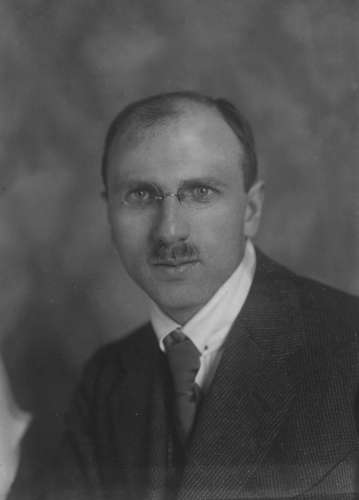
 Il y a des zones d'ombre dans l'histoire que l’on ne raconte généralement pas; peut-être à cause de la difficulté de les étiqueter, de les insérer dans des schémas préconçus qui facilitent, pour les utilisateurs d'un tel code (les masses), la compréhension de la réalité comme mythe : la réalité de la lutte métaphysique du XXe siècle, la lutte du Bien (l’antifascisme sous ses diverses formes, même si les communistes, et surtout les staliniens, étaient partiellement dénigrés dans ce contexte) contre le Mal (le sulfurisme nazi, satanisé à souhait avec queue velue et ratomorphe, fourche brandie).
Il y a des zones d'ombre dans l'histoire que l’on ne raconte généralement pas; peut-être à cause de la difficulté de les étiqueter, de les insérer dans des schémas préconçus qui facilitent, pour les utilisateurs d'un tel code (les masses), la compréhension de la réalité comme mythe : la réalité de la lutte métaphysique du XXe siècle, la lutte du Bien (l’antifascisme sous ses diverses formes, même si les communistes, et surtout les staliniens, étaient partiellement dénigrés dans ce contexte) contre le Mal (le sulfurisme nazi, satanisé à souhait avec queue velue et ratomorphe, fourche brandie).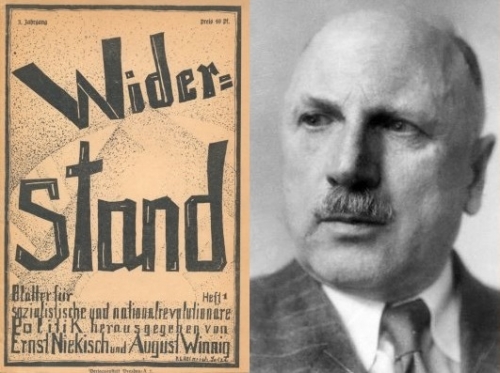
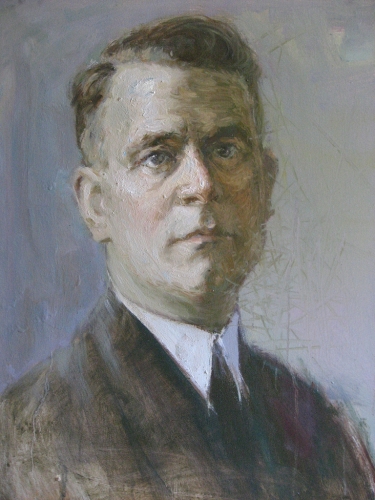
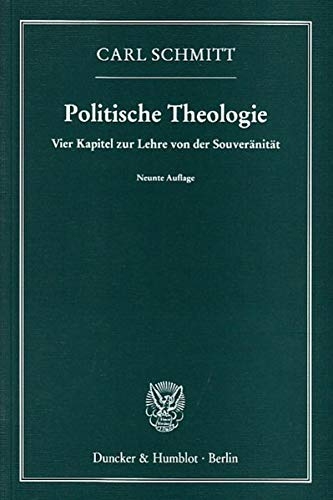 Ainsi, Schmitt en est venu à théoriser un État refondu incarnant la décision souveraine, à neutraliser les affrontements destructeurs issus des chocs entre intérêts privés, et enfin, à se positionner comme un tiers supérieur capable de faire prévaloir le dernier mot d'une autorité radicale, exprimée dans l'état d'exception, sur le conflit social. On comprend qu'avec de telles idées, Schmitt était sur une trajectoire de collision avec le conservatisme prussien politiquement hégémonique dans l'Allemagne wilhelminienne, et aussi dans uneplus large mesure dans l'Allemagne de Weimar. Le pouvoir d'État, pour l'école prussienne, plus que l'autorité transcendante, c'était l'autoritarisme immanent, et plus que la synthèse hégélienne des contraires, c'était l'affirmation monolithique d'un principe unique et ossifié. C'est pourquoi Schmitt a considéré le suicide du grand poète prussien Heinrich von Kleist - un adepte de l'idée métaphysique du Reich -, qui a eu lieu théâtralement sur les rives du lac Wannsee, comme le symbole de l'échec historique du prussianisme et comme un effet tragique de ses contradictions. Schmitt a alors développé la conviction qu'une relance de l'Europe était possible mais sur d'autres bases. Sur la base, précisément, d'une théologie politique. Très critique à l'égard de la pensée politique du Romantisme - accusé d'extravagances irréalisables - Schmitt en est néanmoins une parcelle, et ce, au moment même où il pense que la restauration de l'Esprit est possible sur des bases irrationnelles mais objectives. Greffer le point de vue prométhéen d'un nouveau mythe communautaire dans la pratique politique était plus qu'un rêve. Reconnaître le sens cosmologique de la pensée présocialiste d'un Proudhon, ou le sens poético-visionnaire d'un Theodor Däubler comme antécédents du pouvoir politique, peut sembler une rechute de Schmitt dans ces divagations très impolitiques dont il avait accusé le romantisme.
Ainsi, Schmitt en est venu à théoriser un État refondu incarnant la décision souveraine, à neutraliser les affrontements destructeurs issus des chocs entre intérêts privés, et enfin, à se positionner comme un tiers supérieur capable de faire prévaloir le dernier mot d'une autorité radicale, exprimée dans l'état d'exception, sur le conflit social. On comprend qu'avec de telles idées, Schmitt était sur une trajectoire de collision avec le conservatisme prussien politiquement hégémonique dans l'Allemagne wilhelminienne, et aussi dans uneplus large mesure dans l'Allemagne de Weimar. Le pouvoir d'État, pour l'école prussienne, plus que l'autorité transcendante, c'était l'autoritarisme immanent, et plus que la synthèse hégélienne des contraires, c'était l'affirmation monolithique d'un principe unique et ossifié. C'est pourquoi Schmitt a considéré le suicide du grand poète prussien Heinrich von Kleist - un adepte de l'idée métaphysique du Reich -, qui a eu lieu théâtralement sur les rives du lac Wannsee, comme le symbole de l'échec historique du prussianisme et comme un effet tragique de ses contradictions. Schmitt a alors développé la conviction qu'une relance de l'Europe était possible mais sur d'autres bases. Sur la base, précisément, d'une théologie politique. Très critique à l'égard de la pensée politique du Romantisme - accusé d'extravagances irréalisables - Schmitt en est néanmoins une parcelle, et ce, au moment même où il pense que la restauration de l'Esprit est possible sur des bases irrationnelles mais objectives. Greffer le point de vue prométhéen d'un nouveau mythe communautaire dans la pratique politique était plus qu'un rêve. Reconnaître le sens cosmologique de la pensée présocialiste d'un Proudhon, ou le sens poético-visionnaire d'un Theodor Däubler comme antécédents du pouvoir politique, peut sembler une rechute de Schmitt dans ces divagations très impolitiques dont il avait accusé le romantisme.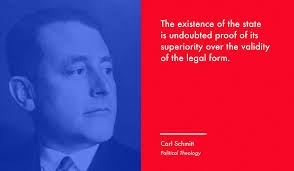
 La quadrature du cercle entre le pouvoir hiérarchique et la participation du peuple, entre la figure salvatrice du Guide et l'égalité des droits, a été réalisée par Schmitt à travers l'élaboration d'une sorte de démocratie germanique. Critiquant le concept ecclésiastique de pasteur et de fidèle (ndt : de distinction entre le pasteur « sachant » et actif et les fidèles passifs), Schmitt a écrit dans Staat, Bewegung und Volk en 1934 que "cette vision ecclésiastique est que le pasteur reste absolument transcendant par rapport au troupeau. Ce n'est pas notre concept de la Führung". Le nouveau concept de Führung, de commandement, d'autorité, Schmitt l’a en effet placé dans "l'égalité absolue de la lignée entre le leader et les suiveurs (la suite, die Folge)... Seule l'égalité de la lignée peut empêcher le pouvoir du leader de devenir tyrannique et arbitraire". De ce point de vue de la hiérarchie égalitaire, l'accès populaire aux différents rangs sociaux était garanti par le Führerprinzip, la plate-forme de masse de l'autorité charismatique. L'histoire a donc mis entre les mains de Schmitt un cas concret de théologie politique...
La quadrature du cercle entre le pouvoir hiérarchique et la participation du peuple, entre la figure salvatrice du Guide et l'égalité des droits, a été réalisée par Schmitt à travers l'élaboration d'une sorte de démocratie germanique. Critiquant le concept ecclésiastique de pasteur et de fidèle (ndt : de distinction entre le pasteur « sachant » et actif et les fidèles passifs), Schmitt a écrit dans Staat, Bewegung und Volk en 1934 que "cette vision ecclésiastique est que le pasteur reste absolument transcendant par rapport au troupeau. Ce n'est pas notre concept de la Führung". Le nouveau concept de Führung, de commandement, d'autorité, Schmitt l’a en effet placé dans "l'égalité absolue de la lignée entre le leader et les suiveurs (la suite, die Folge)... Seule l'égalité de la lignée peut empêcher le pouvoir du leader de devenir tyrannique et arbitraire". De ce point de vue de la hiérarchie égalitaire, l'accès populaire aux différents rangs sociaux était garanti par le Führerprinzip, la plate-forme de masse de l'autorité charismatique. L'histoire a donc mis entre les mains de Schmitt un cas concret de théologie politique...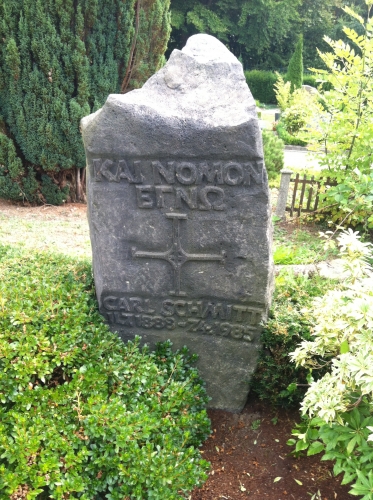
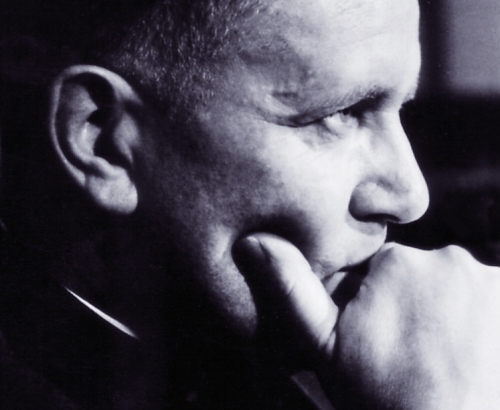
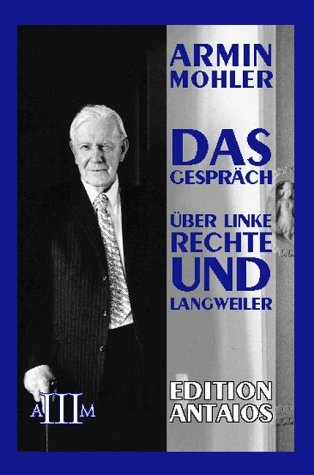


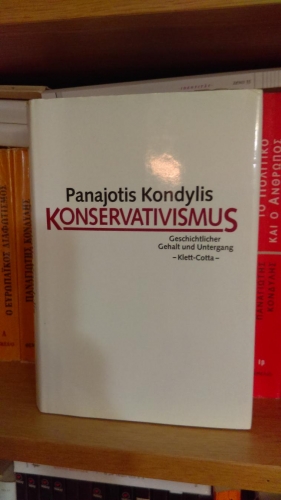
 “[C]ommonplaces of conservative self-understanding and self-presentation have crept […] into the scientific discussion,” such as “the coquettish enmity of conservatives towards theory.” The prioritization of the “concrete” over the “abstract” is itself, or relies upon, an abstraction (p. 15).
“[C]ommonplaces of conservative self-understanding and self-presentation have crept […] into the scientific discussion,” such as “the coquettish enmity of conservatives towards theory.” The prioritization of the “concrete” over the “abstract” is itself, or relies upon, an abstraction (p. 15).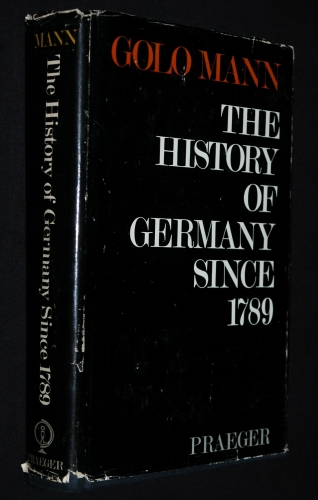
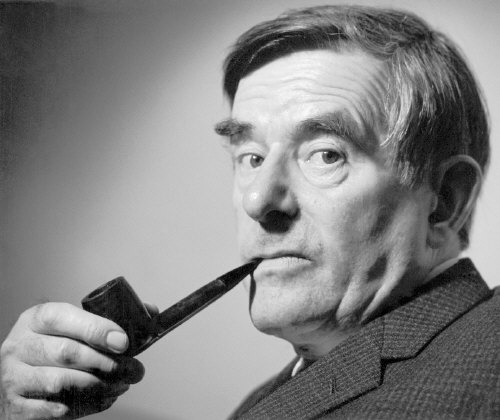
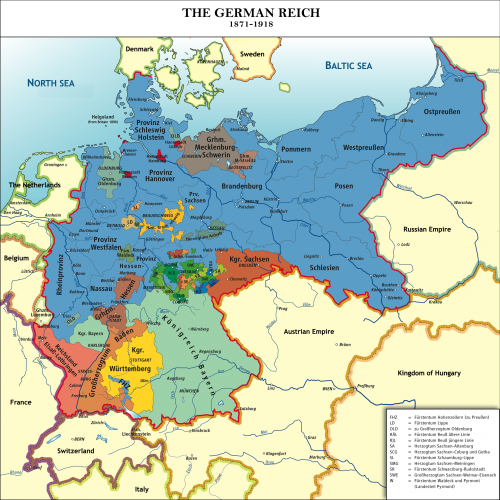
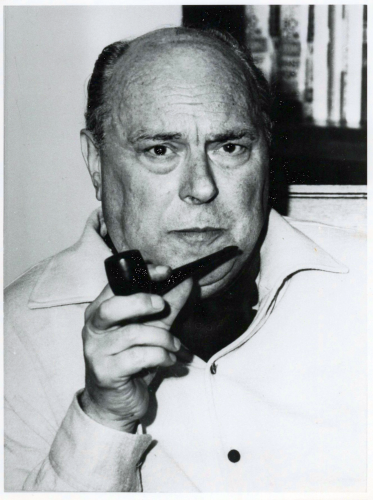
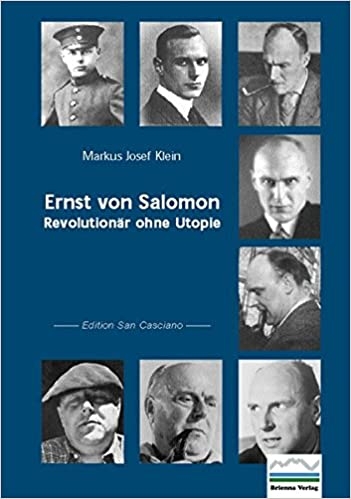


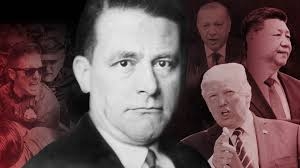

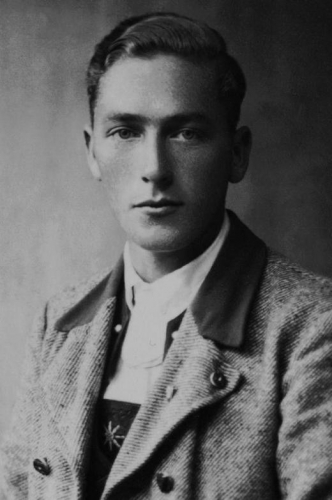
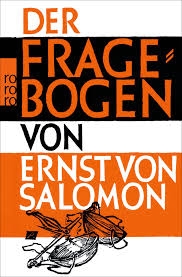 De ce fait le roman présente un intérêt historique évident, qui tient pour une large part à l’acuité de son auteur et à ses ambiguïtés – surtout pour nous autres, lecteurs contemporains, à qui la Seconde Guerre mondiale apparaît volontiers comme un affrontement manichéen qui rend impossible une compréhension exacte de ses ressorts historiques.
De ce fait le roman présente un intérêt historique évident, qui tient pour une large part à l’acuité de son auteur et à ses ambiguïtés – surtout pour nous autres, lecteurs contemporains, à qui la Seconde Guerre mondiale apparaît volontiers comme un affrontement manichéen qui rend impossible une compréhension exacte de ses ressorts historiques. La condamnation pour complicité dans l'affaire Rathenau est toutefois décisive : la prison sera rétrospectivement une chance à plus d'un titre. Pour notre bonheur, d’abord, parce que cet épisode fournit le prétexte à certaines des pages les plus drôles du roman, von Salomon traitant de la vie carcérale avec un humour féroce, se réjouissant par exemple de pouvoir écrire en toute sérénité sans avoir à se soucier ni du gîte ni du couvert ; pour le sien, ensuite, parce que ce séjour en prison empêche sa réintégration au grade de sous-officier dans la Wehrmacht, lorsque la Seconde Guerre mondiale éclate (von Salomon appartient au corps royal des cadets, une expérience décrite dans le roman Les Cadets). Il peut ainsi se maintenir simultanément à l'écart de la politique, du front (il travaille pendant ces années dans l'industrie cinématographique) et par voie de conséquence, de la potence, une fois la guerre perdue.
La condamnation pour complicité dans l'affaire Rathenau est toutefois décisive : la prison sera rétrospectivement une chance à plus d'un titre. Pour notre bonheur, d’abord, parce que cet épisode fournit le prétexte à certaines des pages les plus drôles du roman, von Salomon traitant de la vie carcérale avec un humour féroce, se réjouissant par exemple de pouvoir écrire en toute sérénité sans avoir à se soucier ni du gîte ni du couvert ; pour le sien, ensuite, parce que ce séjour en prison empêche sa réintégration au grade de sous-officier dans la Wehrmacht, lorsque la Seconde Guerre mondiale éclate (von Salomon appartient au corps royal des cadets, une expérience décrite dans le roman Les Cadets). Il peut ainsi se maintenir simultanément à l'écart de la politique, du front (il travaille pendant ces années dans l'industrie cinématographique) et par voie de conséquence, de la potence, une fois la guerre perdue. On sent bien que la politique dans son sens le plus noble, celle qui s’attache aux États et aux peuples, est un tropisme de Von Salomon, et la politique occupe évidemment le devant de la scène dans la période; pourtant Le Questionnaire ne s'y résume pas, loin de là. Outre le récit des différents épisodes de la vie de l’auteur, on y trouve de nombreuses réflexions sur l'art, l'écriture et la littérature, sur l'Histoire, la société, la culture. Von Salomon est aussi un bon vivant, qui aime manger, boire, séduire, conduire des voitures avec une «gueule chromée», plutôt cigale que fourmi, et qui nous offre à l’occasion des saillies authentiquement rabelaisiennes.
On sent bien que la politique dans son sens le plus noble, celle qui s’attache aux États et aux peuples, est un tropisme de Von Salomon, et la politique occupe évidemment le devant de la scène dans la période; pourtant Le Questionnaire ne s'y résume pas, loin de là. Outre le récit des différents épisodes de la vie de l’auteur, on y trouve de nombreuses réflexions sur l'art, l'écriture et la littérature, sur l'Histoire, la société, la culture. Von Salomon est aussi un bon vivant, qui aime manger, boire, séduire, conduire des voitures avec une «gueule chromée», plutôt cigale que fourmi, et qui nous offre à l’occasion des saillies authentiquement rabelaisiennes. Von Salomon consacre près de quatre-vingt pages (642-722) à un séjour en terres basques, du côté de Saint-Jean-de-Luz (le questionnaire s'intéresse à ses séjours à l'étranger) où il fait la connaissance de Mayie, avec laquelle il entretient une relation avant de regagner l'Allemagne. Ce roman dans le roman, évocation nostalgique d'un paradis perdu, s'intercale de façon presque surréaliste entre les derniers moments du régime nazi et l'entrée des Américains dans une Allemagne défaite, et s'imprime dans ce long récit comme un songe – et c'est sans doute comme un songe que ce souvenir est resté à von Salomon, qui écrit : «Mais quand je pense à Mayie, je pense à la France et quand je pense à la France, je pense à Mayie. Ô douce Mayie, Ô Sainte France ! Vous m'avez donné le rêve de ma vie, les grandes vacances de ma vie» (pp. 719-720). Le sentiment qui s’en dégage s’approche de celui que suscite le dernier moment de L’Éducation sentimentale. Ceux qui l’auront lu se souviendront sans doute du vertigineux saut dans le temps que ménage Flaubert à la fin du roman. Proust, à ce propos, écrit en 1920 (À propos du style de Flaubert, in La Nouvelle revue française) : «Sans l’ombre d’une transition, soudain la mesure du temps devenant au lieu de quarts d’heure, des années, des décades». Eh bien cet «abîme» qui s’ouvre et nous laisse justement contempler, amer, la folie d’une vie qui s’est écoulée avec fulgurance et qui contenait, avec le recul, beaucoup plus de vide que de matière – c’est le sentiment qui surnage ici.
Von Salomon consacre près de quatre-vingt pages (642-722) à un séjour en terres basques, du côté de Saint-Jean-de-Luz (le questionnaire s'intéresse à ses séjours à l'étranger) où il fait la connaissance de Mayie, avec laquelle il entretient une relation avant de regagner l'Allemagne. Ce roman dans le roman, évocation nostalgique d'un paradis perdu, s'intercale de façon presque surréaliste entre les derniers moments du régime nazi et l'entrée des Américains dans une Allemagne défaite, et s'imprime dans ce long récit comme un songe – et c'est sans doute comme un songe que ce souvenir est resté à von Salomon, qui écrit : «Mais quand je pense à Mayie, je pense à la France et quand je pense à la France, je pense à Mayie. Ô douce Mayie, Ô Sainte France ! Vous m'avez donné le rêve de ma vie, les grandes vacances de ma vie» (pp. 719-720). Le sentiment qui s’en dégage s’approche de celui que suscite le dernier moment de L’Éducation sentimentale. Ceux qui l’auront lu se souviendront sans doute du vertigineux saut dans le temps que ménage Flaubert à la fin du roman. Proust, à ce propos, écrit en 1920 (À propos du style de Flaubert, in La Nouvelle revue française) : «Sans l’ombre d’une transition, soudain la mesure du temps devenant au lieu de quarts d’heure, des années, des décades». Eh bien cet «abîme» qui s’ouvre et nous laisse justement contempler, amer, la folie d’une vie qui s’est écoulée avec fulgurance et qui contenait, avec le recul, beaucoup plus de vide que de matière – c’est le sentiment qui surnage ici.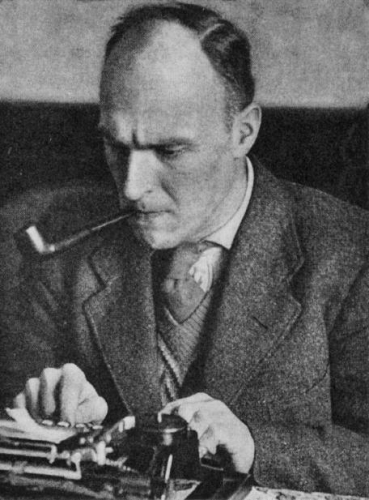
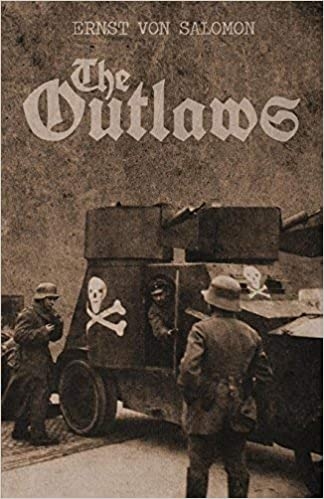 On constate qu’avec une très grande intelligence littéraire, Von Salomon a donc ménagé la présence de ces trois pôles dans le récit (le Gouvernement militaire allié, le lecteur et lui-même), de sorte qu’ils apparaissent d’intensité à peu près égale et que l’un n’écrase pas les deux autres. Pour ce faire, il fallait accentuer démesurément la présence du Gouvernement militaire allié (aidé par son existence historique mais qui demeure, des trois pôles, le plus fragile) – raison pour laquelle il structure si profondément l’ensemble du roman – et il fallait forcer le lecteur à entrer dans le bocal, donc le faire déchoir de sa position confortable mais lointaine d’observateur, de destinataire naturel à qui tout est acquis. Raison pour laquelle son horizon d’attente est trompé : alors que le genre autobiographique invite le lecteur à se croire légitimement destinataire («Je veux montrer à mes semblables...», dit Rousseau dans l’incipit des Confessions), Von Salomon lui coupe l’herbe sous le pied et semble lui substituer le Gouvernement militaire allié. Il fallait enfin circonscrire la place démiurgique de l’auteur, une illusion que von Salomon parvient à donner dès lors qu’il semble se conformer aux injonctions du questionnaire, comme s’il n’était pas maître du récit.
On constate qu’avec une très grande intelligence littéraire, Von Salomon a donc ménagé la présence de ces trois pôles dans le récit (le Gouvernement militaire allié, le lecteur et lui-même), de sorte qu’ils apparaissent d’intensité à peu près égale et que l’un n’écrase pas les deux autres. Pour ce faire, il fallait accentuer démesurément la présence du Gouvernement militaire allié (aidé par son existence historique mais qui demeure, des trois pôles, le plus fragile) – raison pour laquelle il structure si profondément l’ensemble du roman – et il fallait forcer le lecteur à entrer dans le bocal, donc le faire déchoir de sa position confortable mais lointaine d’observateur, de destinataire naturel à qui tout est acquis. Raison pour laquelle son horizon d’attente est trompé : alors que le genre autobiographique invite le lecteur à se croire légitimement destinataire («Je veux montrer à mes semblables...», dit Rousseau dans l’incipit des Confessions), Von Salomon lui coupe l’herbe sous le pied et semble lui substituer le Gouvernement militaire allié. Il fallait enfin circonscrire la place démiurgique de l’auteur, une illusion que von Salomon parvient à donner dès lors qu’il semble se conformer aux injonctions du questionnaire, comme s’il n’était pas maître du récit.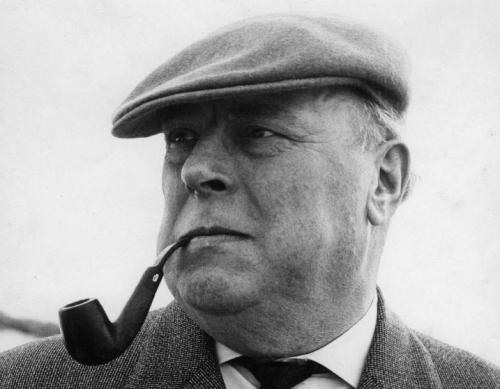

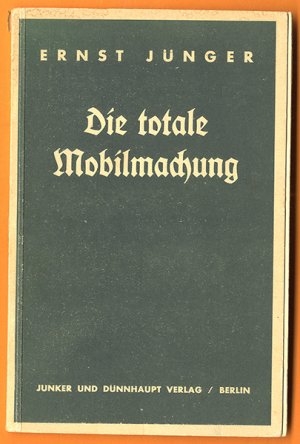
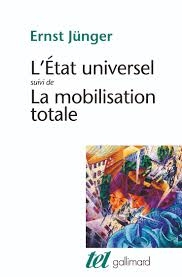 Quatrième extrait
Quatrième extrait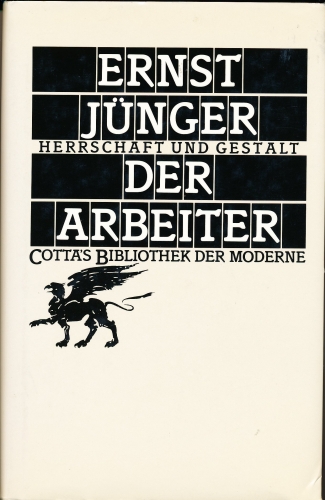 Sixième extrait
Sixième extrait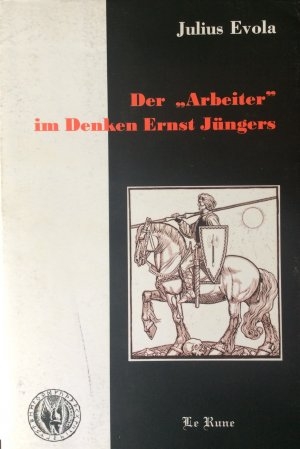 Les masques tomberaient-ils, malgré la propagande, en dépit de la mobilisation ? Certains d’entre nous, trop peu bien entendu, ont pris goût à une vie décélérée et exempte des tourbillons et de l’agitation du quotidien, réalisent que cette liberté retrouvée les renvoie, par contraste, à leur ordinaire condition de servilité, se disent qu’au fond ils se satisferaient bien d’un prolongement de cette parenthèse enchantée. Ils ont même retrouvé une certaine forme de mesure et de sérénité dont le fol emballement de la vie moderne les avait privés (et ils en furent les complices volontaires, nous le savons bien !) : mais que valent ces gouttes d’eau dans l’océan de dispositifs digitaux, que peuvent ces minuscules prises de conscience contre le Grand Déferlement ?
Les masques tomberaient-ils, malgré la propagande, en dépit de la mobilisation ? Certains d’entre nous, trop peu bien entendu, ont pris goût à une vie décélérée et exempte des tourbillons et de l’agitation du quotidien, réalisent que cette liberté retrouvée les renvoie, par contraste, à leur ordinaire condition de servilité, se disent qu’au fond ils se satisferaient bien d’un prolongement de cette parenthèse enchantée. Ils ont même retrouvé une certaine forme de mesure et de sérénité dont le fol emballement de la vie moderne les avait privés (et ils en furent les complices volontaires, nous le savons bien !) : mais que valent ces gouttes d’eau dans l’océan de dispositifs digitaux, que peuvent ces minuscules prises de conscience contre le Grand Déferlement ? 


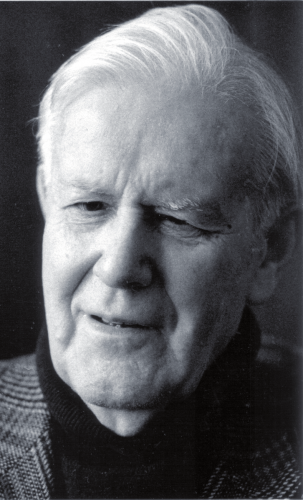
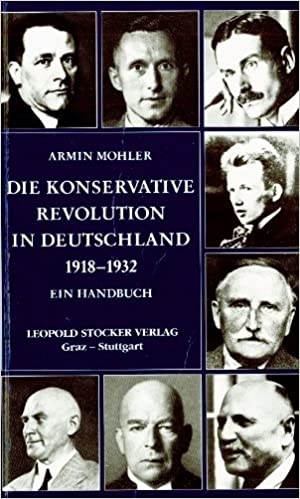 À partir de 1953, Armin Mohler s’installe en France. Il travaille pour les journaux allemands et suisses alémaniques Die Zeit, Die Welt et Die Tat. Il lit Maurice Barrès, Léon Bloy et Georges Sorel qu’il estime dans un livre de 2000 non traduit comme le « Grand-père » de la Révolution conservatrice. Ses amis se nomment Michel Mourre, le provocateur lettriste pré-situationniste, et le futur académicien José Cabanis. Revenu en Allemagne, Armin Mohler s’investit en politique. Ce directeur – gérant de la prestigieuse fondation Carl Friedrich von Siemens écrit pour les revues jeune-conservatrice
À partir de 1953, Armin Mohler s’installe en France. Il travaille pour les journaux allemands et suisses alémaniques Die Zeit, Die Welt et Die Tat. Il lit Maurice Barrès, Léon Bloy et Georges Sorel qu’il estime dans un livre de 2000 non traduit comme le « Grand-père » de la Révolution conservatrice. Ses amis se nomment Michel Mourre, le provocateur lettriste pré-situationniste, et le futur académicien José Cabanis. Revenu en Allemagne, Armin Mohler s’investit en politique. Ce directeur – gérant de la prestigieuse fondation Carl Friedrich von Siemens écrit pour les revues jeune-conservatrice 
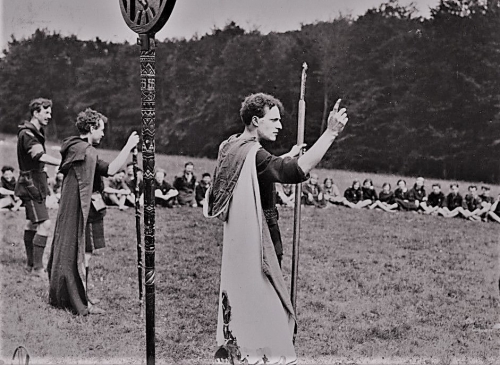
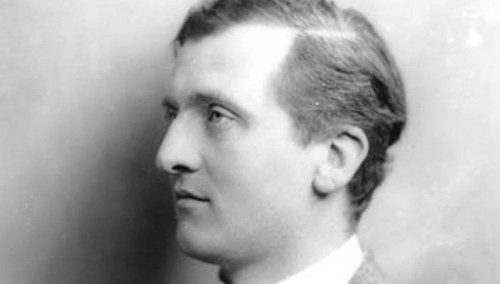
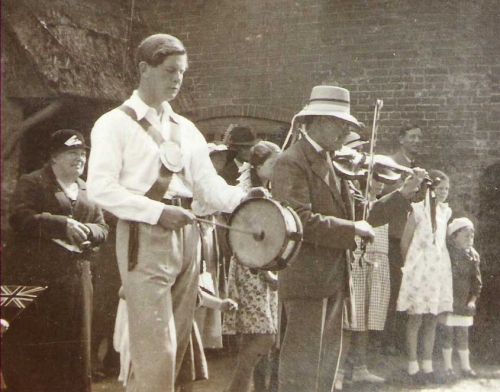
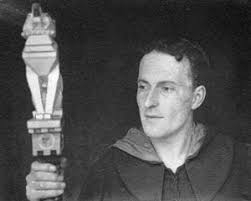 In which case, with John Hargrave (photo), of the Kibbo Kift, and then the Green Shirt Movement for Social Credit, and with Rotha Lintorn-Orman, in her move from pioneering Girl Guide to British Fascist, 2* shades into 4*. Rolf Gardiner is an emblematic figure here. Born in Berlin, and a writer in German, he was a conduit for Bündische ideas.
In which case, with John Hargrave (photo), of the Kibbo Kift, and then the Green Shirt Movement for Social Credit, and with Rotha Lintorn-Orman, in her move from pioneering Girl Guide to British Fascist, 2* shades into 4*. Rolf Gardiner is an emblematic figure here. Born in Berlin, and a writer in German, he was a conduit for Bündische ideas.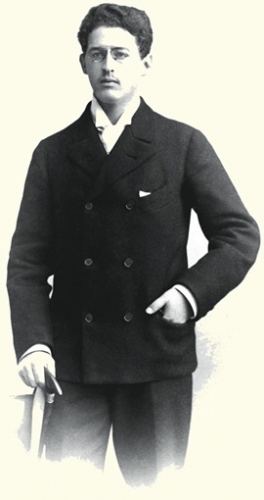 The influence of Nietzsche is almost as important in England as in Germany. Levy’s “Nietzsche Movement in England” is a C.R.-adjacent current. Ludovici began in Levy’s movement to become important within the English Mistery, as well as the illiberal wing of the eugenic movement. An overlooked aspect of Hulme qua philosopher is his similarity to Nietzsche (in “Cinders,” especially). A feature shared by many of the sects thrown together in the pages of The New Age—Social Credit, Toryism, Marxism, guild socialism, Fabianism, Gurdjieffism, etc., etc.—is an interest in Nietzsche.
The influence of Nietzsche is almost as important in England as in Germany. Levy’s “Nietzsche Movement in England” is a C.R.-adjacent current. Ludovici began in Levy’s movement to become important within the English Mistery, as well as the illiberal wing of the eugenic movement. An overlooked aspect of Hulme qua philosopher is his similarity to Nietzsche (in “Cinders,” especially). A feature shared by many of the sects thrown together in the pages of The New Age—Social Credit, Toryism, Marxism, guild socialism, Fabianism, Gurdjieffism, etc., etc.—is an interest in Nietzsche.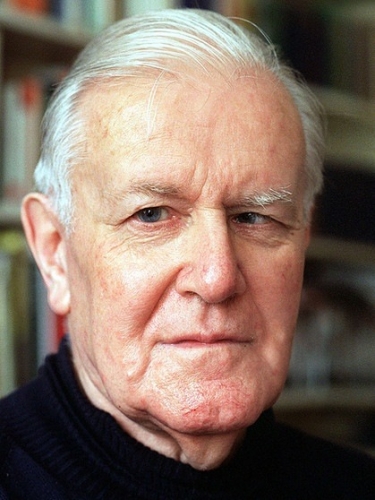
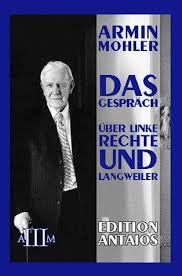 Ce n’était pas une crise, ce n’était pas un problème concret, ce n’était pas davantage une analyse de la situation qui avait généré ces phénomènes politiques. Ils ne devaient leur émergence et leur succès qu’au seul effet de la pensée du défunt Armin Mohler. Or celui, ajoutait le rédacteur de Die Zeit, n’avait rien d’un penseur original. Car Mohler n’avait fait que recycler le « nationalisme folciste » du temps de la République de Weimar. Bien sûr, les protagonistes actuels de la « nouvelle droite » n’atteignaient plus le niveau des Moeller van den Bruck, Oswald Spengler, Carl Schmitt ou Ernst Jünger. Mais, voilà, elles avaient mûri les graines que Mohler, avec son livre Die konservative Revolution in Deutschland, avait semées.
Ce n’était pas une crise, ce n’était pas un problème concret, ce n’était pas davantage une analyse de la situation qui avait généré ces phénomènes politiques. Ils ne devaient leur émergence et leur succès qu’au seul effet de la pensée du défunt Armin Mohler. Or celui, ajoutait le rédacteur de Die Zeit, n’avait rien d’un penseur original. Car Mohler n’avait fait que recycler le « nationalisme folciste » du temps de la République de Weimar. Bien sûr, les protagonistes actuels de la « nouvelle droite » n’atteignaient plus le niveau des Moeller van den Bruck, Oswald Spengler, Carl Schmitt ou Ernst Jünger. Mais, voilà, elles avaient mûri les graines que Mohler, avec son livre Die konservative Revolution in Deutschland, avait semées.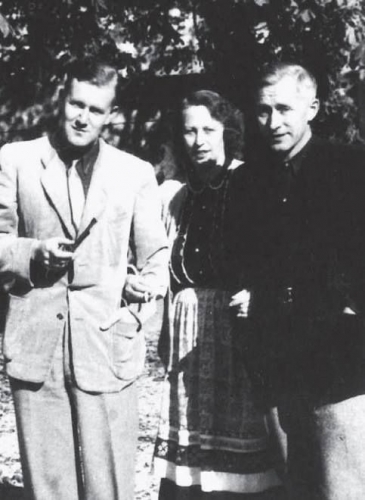 On devra toutefois constater que Mohler n’a laissé qu’un petit nombre d’écrits réellement personnels : on citera, outre son œuvre principale consacrée à la révolution conservatrice, Was die Deutschen fürchten et Die Vergangenheitbewältigung ; mais il ne faut pas oublier, qu’à côté de ces livres-là, il y a eu toute une série d’essais qui ont sans nul doute laissé, chez leurs lecteurs, des impressions bien plus fortes comme, par exemple, Der faschistischen Stil ou Liberalenbeschimpfung.
On devra toutefois constater que Mohler n’a laissé qu’un petit nombre d’écrits réellement personnels : on citera, outre son œuvre principale consacrée à la révolution conservatrice, Was die Deutschen fürchten et Die Vergangenheitbewältigung ; mais il ne faut pas oublier, qu’à côté de ces livres-là, il y a eu toute une série d’essais qui ont sans nul doute laissé, chez leurs lecteurs, des impressions bien plus fortes comme, par exemple, Der faschistischen Stil ou Liberalenbeschimpfung. 
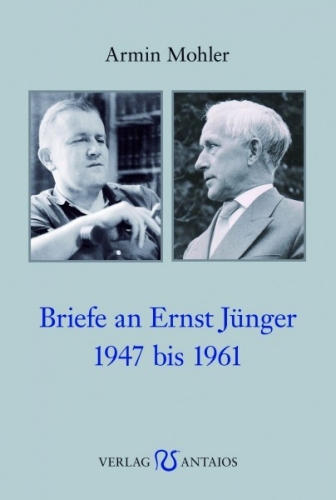 Si l’on cherche à expliquer ce qu’il reste de la pensée de Mohler, alors il faut laisser tomber ce qu’il a souvent lui-même (et aussi ses adversaires) mis au centre de ses préoccupations. Son « nominalisme » n’avait guère de consistence tout comme sa critique du christianisme, sa vision « technocratique » n’a nullement été une solution pour la mouvance conservatrice, son orientation « gaullienne » n’a quasi convaincu personne. En revanche, ce qui est incontournable dans sa manière de saisir le monde, c’est son analyse de « la période axiale du conservatisme ».
Si l’on cherche à expliquer ce qu’il reste de la pensée de Mohler, alors il faut laisser tomber ce qu’il a souvent lui-même (et aussi ses adversaires) mis au centre de ses préoccupations. Son « nominalisme » n’avait guère de consistence tout comme sa critique du christianisme, sa vision « technocratique » n’a nullement été une solution pour la mouvance conservatrice, son orientation « gaullienne » n’a quasi convaincu personne. En revanche, ce qui est incontournable dans sa manière de saisir le monde, c’est son analyse de « la période axiale du conservatisme ». 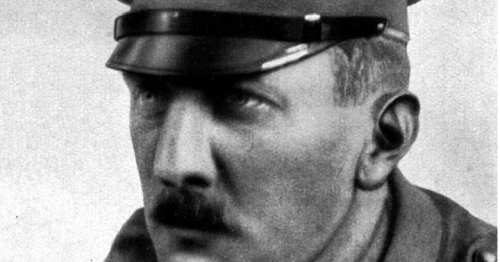
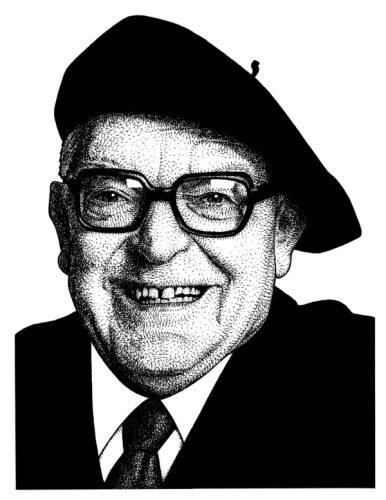

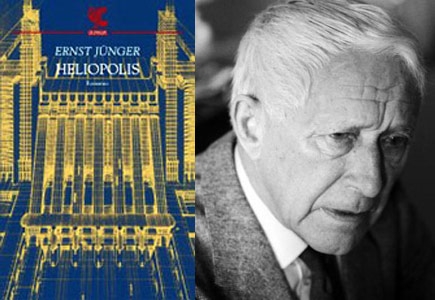

 Like many of his books, Carl Schmitt’s The Crisis of Parliamentary Democracy (1923) is a slender volume packed with explosive ideas.
Like many of his books, Carl Schmitt’s The Crisis of Parliamentary Democracy (1923) is a slender volume packed with explosive ideas. The rationale for making decisions in parliament, as opposed to reposing them in the hands of a single man, is that even the wisest man may benefit from hearing other points of view. We are more likely to arrive at the best possible decision if a number of people bring different perspectives and bodies of knowledge to the table. But the process only works if all parties are open to being persuaded by one another, i.e., they are willing to change their minds if they hear a better argument. This is what argument in “good faith” means, as opposed to merely shilling for a fixed idea.
The rationale for making decisions in parliament, as opposed to reposing them in the hands of a single man, is that even the wisest man may benefit from hearing other points of view. We are more likely to arrive at the best possible decision if a number of people bring different perspectives and bodies of knowledge to the table. But the process only works if all parties are open to being persuaded by one another, i.e., they are willing to change their minds if they hear a better argument. This is what argument in “good faith” means, as opposed to merely shilling for a fixed idea. Liberalism’s abstract egalitarian zeal has never resulted in a global liberal democracy or the enfranchisement of every infant or imbecile (p. 16). Indeed, such goals are impossible. But it has undermined the conditions that make good-faith parliamentary discussions possible.
Liberalism’s abstract egalitarian zeal has never resulted in a global liberal democracy or the enfranchisement of every infant or imbecile (p. 16). Indeed, such goals are impossible. But it has undermined the conditions that make good-faith parliamentary discussions possible. Schmitt isn’t always forthcoming about his own political preferences, but sometimes his rhetoric tips his hand. The first three chapters of Crisis are quite dry, and Schmitt’s arguments only really come into focus in the 1926 Preface to the Second Edition. But chapter 4 crackles with enthusiasm as Schmitt discusses Sorel’s Reflections on Violence, as well as Russian anarchist Mikhail Bakunin, French anarchist Pierre-Joseph Proudhon, and Spanish Catholic reactionary Juan Donoso Cortés. Then Schmitt ends by arguing that nationalism and fascism are more consistent with Sorel’s ultimate premises than are Communism, socialism, or anarcho-syndicalism.
Schmitt isn’t always forthcoming about his own political preferences, but sometimes his rhetoric tips his hand. The first three chapters of Crisis are quite dry, and Schmitt’s arguments only really come into focus in the 1926 Preface to the Second Edition. But chapter 4 crackles with enthusiasm as Schmitt discusses Sorel’s Reflections on Violence, as well as Russian anarchist Mikhail Bakunin, French anarchist Pierre-Joseph Proudhon, and Spanish Catholic reactionary Juan Donoso Cortés. Then Schmitt ends by arguing that nationalism and fascism are more consistent with Sorel’s ultimate premises than are Communism, socialism, or anarcho-syndicalism. Schmitt then hastens to add that a similar vision of a bloody final reckoning was found on the Right: “In 1848 this image rose up on both sides in opposition to parliamentary constitutionalism: from the side of tradition in a conservative sense, represented by a Catholic Spaniard, Donoso Cortés, and in radical anarcho-syndicalism in Proudhon. Both demanded a decision. . . . Instead of relative oppositions accessible to parliamentary means, absolute antitheses now appear” (p. 69). But the tireless talk of bourgeois parliamentarians is all about evading the necessity of decision in the face of hard either/ors, about evading the existence of real enmity. “In the eyes of Donoso Cortés, this socialist anarchist [Proudhon] was an evil demon, a devil, and for Proudhon the Catholic was a fanatical Grand Inquisitor, whom he attempted to laugh off. Today it is easy to see that both were their own real opponent and that everything else was only a provisional half-measure” (p. 70). Schmitt clearly hungers for a similar clarity in Weimar and saw the rise of Fascism in Italy as the present-day nemesis of the Left.
Schmitt then hastens to add that a similar vision of a bloody final reckoning was found on the Right: “In 1848 this image rose up on both sides in opposition to parliamentary constitutionalism: from the side of tradition in a conservative sense, represented by a Catholic Spaniard, Donoso Cortés, and in radical anarcho-syndicalism in Proudhon. Both demanded a decision. . . . Instead of relative oppositions accessible to parliamentary means, absolute antitheses now appear” (p. 69). But the tireless talk of bourgeois parliamentarians is all about evading the necessity of decision in the face of hard either/ors, about evading the existence of real enmity. “In the eyes of Donoso Cortés, this socialist anarchist [Proudhon] was an evil demon, a devil, and for Proudhon the Catholic was a fanatical Grand Inquisitor, whom he attempted to laugh off. Today it is easy to see that both were their own real opponent and that everything else was only a provisional half-measure” (p. 70). Schmitt clearly hungers for a similar clarity in Weimar and saw the rise of Fascism in Italy as the present-day nemesis of the Left. Schmitt closes with an immanent critique of Sorel. First, Schmitt argues that Sorel himself ultimately subordinates proletarian myth and violence to rationalism, because the goal of the revolution is to take control of the means of production. But the modern economic system is of a piece with bourgeois democracy, thus “If one followed the bourgeois into economic terrain, then one must also follow him into democracy and parliamentarism” (p. 73). This does not strike me as particularly persuasive. When Schmitt was writing, the example of Imperial Japan showed that one can have a modern industrial economy without liberal democracy.
Schmitt closes with an immanent critique of Sorel. First, Schmitt argues that Sorel himself ultimately subordinates proletarian myth and violence to rationalism, because the goal of the revolution is to take control of the means of production. But the modern economic system is of a piece with bourgeois democracy, thus “If one followed the bourgeois into economic terrain, then one must also follow him into democracy and parliamentarism” (p. 73). This does not strike me as particularly persuasive. When Schmitt was writing, the example of Imperial Japan showed that one can have a modern industrial economy without liberal democracy. The nineteenth century was the age of parliamentary liberal democracy. The twentieth century is the age of political myths. The rise of political myth is itself “the most powerful symptom of the decline of the relative rationalism of parliamentary thought” (p. 76). The Left may be the gravedigger of liberal democracy, but it offers no real alternative, simply modern materialism and rationalism stripped of the liberal charms of freedom and private life.
The nineteenth century was the age of parliamentary liberal democracy. The twentieth century is the age of political myths. The rise of political myth is itself “the most powerful symptom of the decline of the relative rationalism of parliamentary thought” (p. 76). The Left may be the gravedigger of liberal democracy, but it offers no real alternative, simply modern materialism and rationalism stripped of the liberal charms of freedom and private life.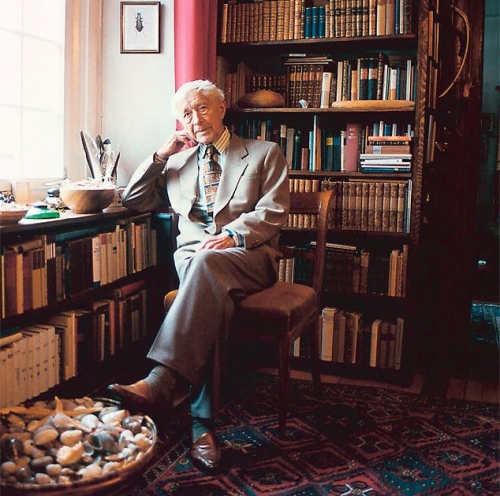

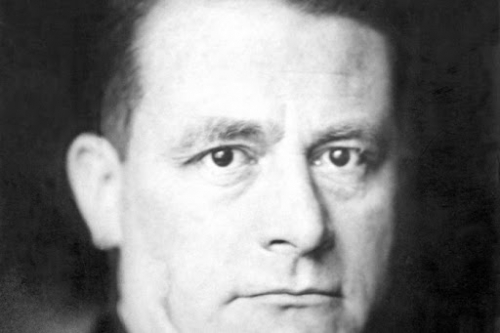

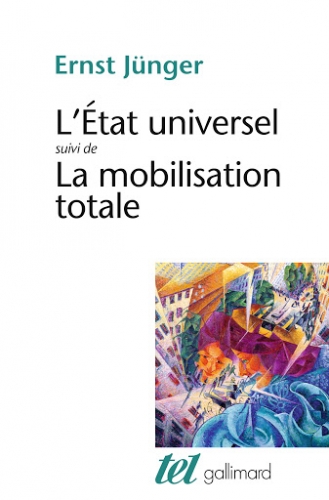 Ce fut l’idoine occasion de relire l’essai d’Ernst Jünger, qui, paru en 1930, porte précisément le nom de La mobilisation totale (Éditions Gallimard, coll. Tel, 1990), et d’en proposer quelques extraits choisis et commentés afin d’éclairer, par le recul qui tient à la distance temporelle, c’est-à-dire de manière inactuelle, la déconcertante actualité que nous vécûmes et continuons à vivre.
Ce fut l’idoine occasion de relire l’essai d’Ernst Jünger, qui, paru en 1930, porte précisément le nom de La mobilisation totale (Éditions Gallimard, coll. Tel, 1990), et d’en proposer quelques extraits choisis et commentés afin d’éclairer, par le recul qui tient à la distance temporelle, c’est-à-dire de manière inactuelle, la déconcertante actualité que nous vécûmes et continuons à vivre. 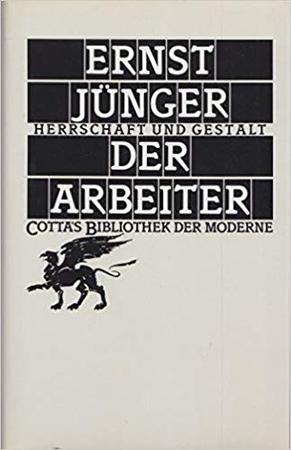 N’anticipons guère, car les critères de démarcation apparaîtront bien assez tôt, mais notons ceci afin d’établir un pont avec l’actualité : comprendre l’événement, pour Jünger, ne consiste pas à répéter mécaniquement, machinalement si l’on peut dire, les analyses précédentes et les schémas explicatifs préétablis; cela consiste, tout au contraire, à cerner sa spécificité, et à poser sur lui les justes mots afin de le faire advenir en tant que tel à la conscience collective. Telle fut très certainement la première faute, de nature épistémologique mais aux conséquences politiques, du Président Emmanuel Macron et de son équipe gouvernementale qui n’eurent de cesse de parler d’un virus comme d’un ennemi et d’une épidémie comme d’une guerre, des choix lexicaux et sémantiques pour le moins malheureux qui sont à mon sens en partie responsables de comportements a priori irrationnels comme la razzia des commerces (attention, indispensable précision, par ces propos, je n’excuse ni ne cautionne en aucune manière ces agissements dignes de pourceaux dépourvus de toute faculté de juger).
N’anticipons guère, car les critères de démarcation apparaîtront bien assez tôt, mais notons ceci afin d’établir un pont avec l’actualité : comprendre l’événement, pour Jünger, ne consiste pas à répéter mécaniquement, machinalement si l’on peut dire, les analyses précédentes et les schémas explicatifs préétablis; cela consiste, tout au contraire, à cerner sa spécificité, et à poser sur lui les justes mots afin de le faire advenir en tant que tel à la conscience collective. Telle fut très certainement la première faute, de nature épistémologique mais aux conséquences politiques, du Président Emmanuel Macron et de son équipe gouvernementale qui n’eurent de cesse de parler d’un virus comme d’un ennemi et d’une épidémie comme d’une guerre, des choix lexicaux et sémantiques pour le moins malheureux qui sont à mon sens en partie responsables de comportements a priori irrationnels comme la razzia des commerces (attention, indispensable précision, par ces propos, je n’excuse ni ne cautionne en aucune manière ces agissements dignes de pourceaux dépourvus de toute faculté de juger).
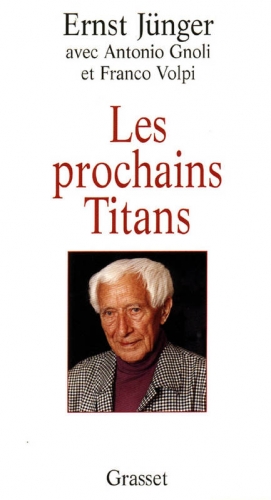 Le Réseau est une chose, notre appétence et notre célérité à nous y soumettre une autre. Jünger, qui aura sur ce point très largement anticipé et influencé les développements de Heidegger dans La question de la technique, conférence dans laquelle ce dernier affirme notamment que «l’essence de la technique n’est pas la technique», met en évidence qu’aucun dispositif technique ne parvient à s’encastrer dans le tissu social, c’est-à-dire à devenir un système sociotechnique, s’il n’est précédé d’une révolution anthropologique qui, dans les mentalités et les structures de la croyance collective, légitime l’usage dudit dispositif. Pourquoi donc le confinement, présenté comme un acte de mobilisation, et désormais les règles du déconfinement, qui ne sont autres que la poursuite de la mobilisation sous une forme nouvelle, se trouvent-t-ils aussi largement respectés ? Il est vrai que la peur de la maladie et la crainte de l’amende y sont pour quelque chose, je ne le nie pas; mais c’est au fond le principe directeur de notre société qui oriente nos actions, pour les uns, qui se limitent à respecter les consignes, de façon minimaliste, pour les autres, qui n’hésitent guère à prendre directement part au combat en cousant des masques et en imprimant des visières (masques et visières, dont la pénurie annonce la future fortune de proches du pouvoir, c’est une évidence qui ne requiert aucune boule de cristal), de manière engagée voire fanatique.
Le Réseau est une chose, notre appétence et notre célérité à nous y soumettre une autre. Jünger, qui aura sur ce point très largement anticipé et influencé les développements de Heidegger dans La question de la technique, conférence dans laquelle ce dernier affirme notamment que «l’essence de la technique n’est pas la technique», met en évidence qu’aucun dispositif technique ne parvient à s’encastrer dans le tissu social, c’est-à-dire à devenir un système sociotechnique, s’il n’est précédé d’une révolution anthropologique qui, dans les mentalités et les structures de la croyance collective, légitime l’usage dudit dispositif. Pourquoi donc le confinement, présenté comme un acte de mobilisation, et désormais les règles du déconfinement, qui ne sont autres que la poursuite de la mobilisation sous une forme nouvelle, se trouvent-t-ils aussi largement respectés ? Il est vrai que la peur de la maladie et la crainte de l’amende y sont pour quelque chose, je ne le nie pas; mais c’est au fond le principe directeur de notre société qui oriente nos actions, pour les uns, qui se limitent à respecter les consignes, de façon minimaliste, pour les autres, qui n’hésitent guère à prendre directement part au combat en cousant des masques et en imprimant des visières (masques et visières, dont la pénurie annonce la future fortune de proches du pouvoir, c’est une évidence qui ne requiert aucune boule de cristal), de manière engagée voire fanatique. Il n’est guère étonnant que Jünger tienne ses propos, lui qui assiste à l’émergence des relations publiques dont le chef d’œuvre inaugural demeure l’incroyable Propaganda d’Edward Bernays. Quant à nous, c’est la télévision et ses experts, ce sont les journaux et leurs éditorialistes, ce sont toutes ces associations subventionnées et leurs porte-paroles illuminés, qui anesthésient toute liberté d’esprit afin d’imposer la disponibilité en principe de vie. Peut-être l’opposition que Jünger dresse entre civilisation et culture suggère-t-elle d’ailleurs une issue qu’il faudrait prendre à la lettre, au mot : la campagne ne serait-elle pas la clef des champs, elle qui demeure encore un peu, malgré tout, allergique au baratin du nouveau monde ?
Il n’est guère étonnant que Jünger tienne ses propos, lui qui assiste à l’émergence des relations publiques dont le chef d’œuvre inaugural demeure l’incroyable Propaganda d’Edward Bernays. Quant à nous, c’est la télévision et ses experts, ce sont les journaux et leurs éditorialistes, ce sont toutes ces associations subventionnées et leurs porte-paroles illuminés, qui anesthésient toute liberté d’esprit afin d’imposer la disponibilité en principe de vie. Peut-être l’opposition que Jünger dresse entre civilisation et culture suggère-t-elle d’ailleurs une issue qu’il faudrait prendre à la lettre, au mot : la campagne ne serait-elle pas la clef des champs, elle qui demeure encore un peu, malgré tout, allergique au baratin du nouveau monde ?  Le président Emmanuel Macron le sait bien, et si vraiment il l’ignore, une quelconque huile l’aura bien averti : la colère gronde, dont l’intensité n’a d’égale que son niveau d’incompétence et d’incurie – sans compter l’irritation née de ces invraisemblables et insignifiantes envolées technico-lyriques («un été apprenant et culturel» ! : «mdr» aurait-t-on envie de rétorquer) qui circulent en boucle sur les réseaux sociaux. L’épuisement de l’opposition, non pas celle qui se met douillettement en scène à l’Assemblée Nationale en attendant que le fatum de l’alternance produise son effet, mais celle qui s’empare des ronds-points de l’Hexagone et refuse de se laisser institutionnaliser par le jeu de la représentation, l’épuisement de cette opposition-là, qui se trouve aujourd’hui mobilisée en première ligne dans les hôpitaux, les commerces et les ateliers, représente très certainement le gage d’une certaine tranquillité intérieure, c’est-à-dire de sa possible réélection, à condition, par conséquent, de maintenir l’état d’exception jusqu’à ce qu’il soit accepté comme normal et que le régime autoritaire, dictatorial, s’installe dans notre quotidien avec le statut de l’évidence. Le tout assorti de concessions qui ne le sont point : remaniement ministériel, retour de la souveraineté, tournant écologique, visions du monde d’après qui ne sera plus jamais le même, etc.
Le président Emmanuel Macron le sait bien, et si vraiment il l’ignore, une quelconque huile l’aura bien averti : la colère gronde, dont l’intensité n’a d’égale que son niveau d’incompétence et d’incurie – sans compter l’irritation née de ces invraisemblables et insignifiantes envolées technico-lyriques («un été apprenant et culturel» ! : «mdr» aurait-t-on envie de rétorquer) qui circulent en boucle sur les réseaux sociaux. L’épuisement de l’opposition, non pas celle qui se met douillettement en scène à l’Assemblée Nationale en attendant que le fatum de l’alternance produise son effet, mais celle qui s’empare des ronds-points de l’Hexagone et refuse de se laisser institutionnaliser par le jeu de la représentation, l’épuisement de cette opposition-là, qui se trouve aujourd’hui mobilisée en première ligne dans les hôpitaux, les commerces et les ateliers, représente très certainement le gage d’une certaine tranquillité intérieure, c’est-à-dire de sa possible réélection, à condition, par conséquent, de maintenir l’état d’exception jusqu’à ce qu’il soit accepté comme normal et que le régime autoritaire, dictatorial, s’installe dans notre quotidien avec le statut de l’évidence. Le tout assorti de concessions qui ne le sont point : remaniement ministériel, retour de la souveraineté, tournant écologique, visions du monde d’après qui ne sera plus jamais le même, etc. Le progrès a pour nous un statut d’évidence; non plus le progrès moral (celui qui croit au perfectionnement de l’individu raisonnable par l’éducation), non plus le progrès historico-politique (celui qui imagine la construction d’un avenir radieux par des citoyens rationnels épousant le sens de l’Histoire), mais, bien sûr, le progrès technique qui, sûr de son statut d’idole et de son implacable force, lance ses rouleaux-compresseurs mécaniques, automatiques, numériques, à l’assaut des vieilleries de la civilisation, écrase les traditions, casse les institutions et concasse les corps intermédiaires, broye le langage pour lui substituer le grincement assourdissant des rouages et le bruit diffus de l’information. Non, ce n’est pas un monde que détruit le progrès; non ce n’est pas seulement une ère qui prend fin sous les coups de butoir de la méga-machine; non, Messieurs les relativistes, notre époque ne saurait se diluer dans une histoire générale du mal et de ses manifestations. Jamais les assemblages anthropologiques qui garantissent la pérennité de l’espèce humaine ont-ils été aussi durement mis à l’épreuve; jamais une société («société» qui s’est, soit dit en passant, dilué dans le «social», dilution ou dissolution qui mériterait à elle seule un article entier) n’a-t-elle adopté, pour seul mode de reproduction, la fabrique d’êtres opérationnels. Telle est bien, au fond, l’énigme que nous laissons à nos survivants ou, hypothèse osée mais stimulante, à une civilisation extra-terrestre qui découvrirait les décombres de la nôtre. Si l’espèce humaine, je veux dire : réellement humaine, venait à survivre à cette catastrophe, alors nos descendants s’interrogeront, avant peut-être de baisser les bras devant l’insondable mystère du progrès : mais de quelle folie ont-ils été pris, nos ancêtres de la société industrielle, pour précipiter la civilisation dans l’apocalypse ?
Le progrès a pour nous un statut d’évidence; non plus le progrès moral (celui qui croit au perfectionnement de l’individu raisonnable par l’éducation), non plus le progrès historico-politique (celui qui imagine la construction d’un avenir radieux par des citoyens rationnels épousant le sens de l’Histoire), mais, bien sûr, le progrès technique qui, sûr de son statut d’idole et de son implacable force, lance ses rouleaux-compresseurs mécaniques, automatiques, numériques, à l’assaut des vieilleries de la civilisation, écrase les traditions, casse les institutions et concasse les corps intermédiaires, broye le langage pour lui substituer le grincement assourdissant des rouages et le bruit diffus de l’information. Non, ce n’est pas un monde que détruit le progrès; non ce n’est pas seulement une ère qui prend fin sous les coups de butoir de la méga-machine; non, Messieurs les relativistes, notre époque ne saurait se diluer dans une histoire générale du mal et de ses manifestations. Jamais les assemblages anthropologiques qui garantissent la pérennité de l’espèce humaine ont-ils été aussi durement mis à l’épreuve; jamais une société («société» qui s’est, soit dit en passant, dilué dans le «social», dilution ou dissolution qui mériterait à elle seule un article entier) n’a-t-elle adopté, pour seul mode de reproduction, la fabrique d’êtres opérationnels. Telle est bien, au fond, l’énigme que nous laissons à nos survivants ou, hypothèse osée mais stimulante, à une civilisation extra-terrestre qui découvrirait les décombres de la nôtre. Si l’espèce humaine, je veux dire : réellement humaine, venait à survivre à cette catastrophe, alors nos descendants s’interrogeront, avant peut-être de baisser les bras devant l’insondable mystère du progrès : mais de quelle folie ont-ils été pris, nos ancêtres de la société industrielle, pour précipiter la civilisation dans l’apocalypse ?